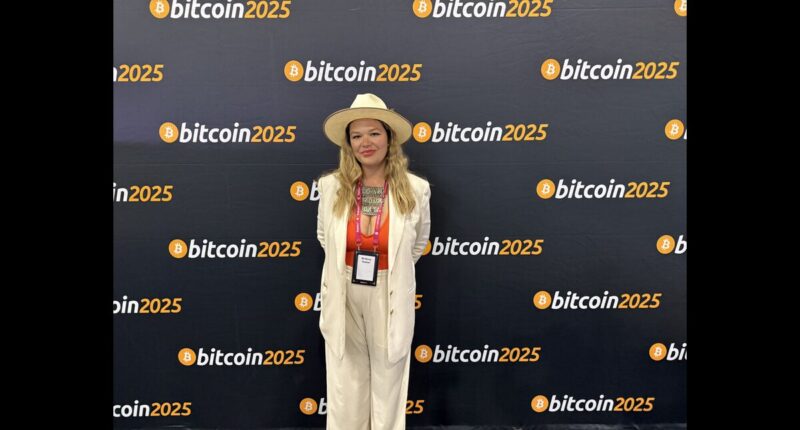Brittany Kaiser, is no stranger to crypto and blockchain. A digital asset law expert, she started in Bitcoin mining in 2011. As Real World Asset tokenization captures the imagination of innovators, government bodies, and investors, Brittany has found a way to take RWA tokenization to the next level.
Coin Headlines spoke with Brittany on her latest venture Chateaushi, which aims to tokenize castles and heritage sites to drive liquidity and promote interest in historical architecture.
Q. Tell us about your journey from drafting laws for digital assets to tokenizing castles?
Brittany: I am a lawyer and during my studies I ended up specializing in digital asset rights. So I’ve helped draft most of the blockchain and crypto laws in the United States. A lot of those laws have now been used all over the world in order to define our digital assets as intangible personal property, the first digital asset banking licenses, the first, the Dow LLC law, the definition of a digital identity. All of those laws I co-wrote for the first time. So I came from the legal space and then became a serial entrepreneur in digital assets and I am a multi-exit founder and currently CEO and founder of Chateaushi, which is the first RWA marketplace that is focused on historic real estate.
Q. How is this venture going, it is not a very traditional route to asset tokenization.
Brittany: So it’s very exciting. This is something that I wanted to start doing about seven years ago, but in 2017, the law didn’t really allow you to do utility tokens as an American or to create security tokens and have those traded on an exchange. But we’re in a very different world today, so I saw a huge opportunity for historic estate owners, whether it’s a ministry of culture, foundation, a nonprofit, or a private family that owns a historic state. Normally it’s quite expensive to restoration, renovation, opening it to the public, marketing it as a tourist destination. That’s quite a budget undertaking. And a lot of my friends who were in this position taking over their family estate didn’t know what to do. A lot of my friends were spending an extraordinary amount of money renting castles, but they had no way of investing in castles unless they bought the whole thing. And when they bought the whole thing, they realized they didn’t know how to manage it. So there seemed to be a great opportunity to provide liquidity for an illiquid asset for my friends that were estate owners and to give special access and investment opportunities into castles and palaces, and other historic real estate to my multi-exit founder friends who would love to take advantage of that opportunity.
Q. Explain to our readers how the tokenization of real world historical assets works?
Brittany: Let me simplify this process. We start by taking a site, like for instance, a castle. You have to create an organized entity for it, with an additional contract, so to speak. And then you allow people to take ownership via that additional contract. You allow people to also do maintenance, and any other related activities. What we normally do is a tokenization of a minority stake of the equity share. So we take 49% or less so the family or government retains control. We tokenize it and we sell that to our community, that gives you ownership rights of that equity. So it’s equity that allows you to own part of the whole business of running this amazing piece of historic commercial real estate. You get paid quarterly dividends off of that, which is quite exciting. And that means that you’re an equity owner. It also means you get utility tokens to vote the place so you can book it for your own events, for your wedding, your conference, or historic retreat, whatever you want to do. And you also get access to our entire network of castles.
Q. How many castles or sites do you have partnering with you on this project?
Brittany: Right now, it’s over 100 of them, and we have over 500 that have asked to join the platform. These castles are in UK, France, and Italy right now, but we have over 17 countries where historical state owners have asked to join that includes India, Egypt, Mexico, places that are the most popular in the world for tourists who are going to visit landmarks and monuments.
Q. You have also recently expanded to the U.A.E.?
Brittany: The UAE will be part of our network as we have partnered with VARA compliant family office networks that are investing in digital assets in real estate in order to become a part of our investor network. And so we will be syndicating out our security tokens to the UAE and in general, any place that has historic real estate, we’re more than happy to work with, but our membership and our co-owners will definitely be a lot of them in the UAE.
Q. You didn’t mention the US as being one of the places where you hold these assets. So as of now, there are none that you hold in the US. Is that due to regulations?
Brittany: It’s only due to regulations, as soon as the regulatory environment opens up, which it will quite soon, I believe. Then we will definitely be tokenizing U.S. estates as well. It is currently possible, but it’s a little more complex than doing it in Switzerland, where we are based at the moment. I completely believe that this administration is so pro crypto that we’re going to see for the first time that the United States is going to have federal law on crypto, even now, we have our first security stablecoin definition in federal law. It’s about to pass. That’s huge. That’s the first ever federal law in the United States on crypto, which is a very, very big deal. We already have a state like Wyoming where I co-wrote a lot of the legislation that has led the way on digital asset definitions. So we already have a very comprehensive legislative framework. This is over 50, 60 laws that define important parts of the digital asset crypto blockchain industry, not just Bitcoin. And the most ethical and compliant way to move forward. So that we have real rules to work by. I think most Americans over the past 15 years would have loved to start their company in America, but said, we’ve got in Switzerland, we’ve done it in the UAE, we’ve done it in the Cayman Islands, or Puerto Rico because we haven’t been able to in the U.S. So this administration is creating the first ever renaissance for American companies to be working in the crypto space, but it also allows the rest of the world to hopefully soon, to start including Americans in their investor network because Americans have traditionally been blocked from investing in global crypto projects. So this is a huge revolution and a very positive sign for what’s to come.
Q Tokenization in real estate is on a major upswing at the moment, do you see it becoming a focus for investors?
Brittany: For me, I think the most exciting part about real world assets, tokenization is taking traditionally a low-liquid market and bringing some liquidity to it. It just unlocks so much stagnant money that otherwise would not be investable or a part of the economy. So some of my friends that are castle owners, their family has owned these places for 500 to 1,000 years. And they’ve never been able to get any liquidity on their estate. They either sell it 100% and lose it forever. Or they 100% keep it, and a lot of times if they don’t have a good enough cash flow positive business model, they can’t even get a loan from the bank. So they’re quite stuck. What we come in and do is help them create a cash flow of positive business model so that they become a good commercial real estate investment. And then we take a portion of the equity, ideally 49% or less so that the family can never, or the foundation or the government can never lose control. And they unlock that liquidity by selling it to investors all over the world, who are then going to create demand for the products and services of the estate and come and stay there with their friends or families, throw corporate retreats there, and this becomes an extra revenue generation. While, the entire year when everybody else is using it, those dividends are going to go back to the shareholder. So it’s a win win for the security token buyer as well as the estate owner.





